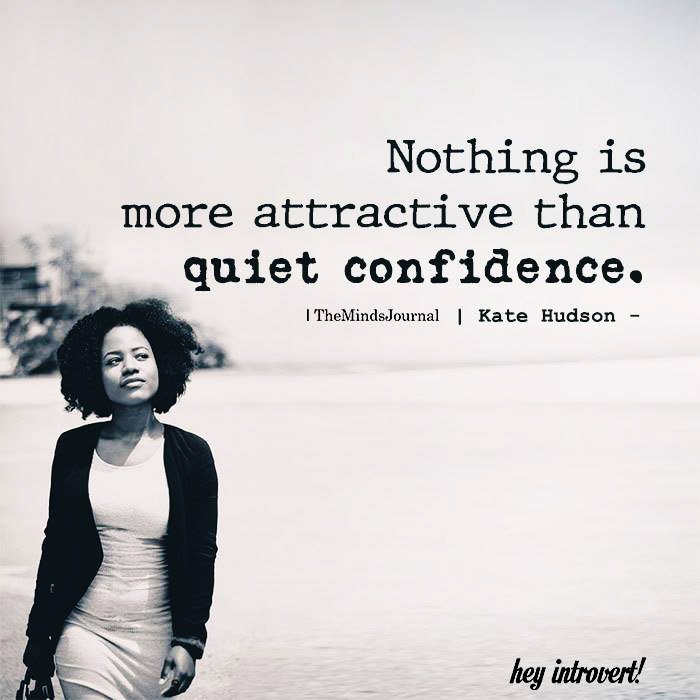Are you aware of the habits of confident people? Have you ever wondered how some people have an unshakable sense of confidence in themselves? Here are 9 habits of highly confident people.
Most likely, they have worked to know and accept themselves in a way that most people simply don’t. Want to learn how to be a confident person? Read this article to learn more about them.
“Accept who you are; and revel in it,” wrote Mitch Albom.
There’s nothing special about them that makes this possible. You can do it, too.
If you want to cultivate this quality in yourself, here are nine habits to pick up and that show signs of a confident person.
9 Habits of Highly Confident People: Showing Signs of Confidence
1. They Are Quick To Admit When They Are Wrong, And To Apologize When Necessary.
All of us make mistakes. A confident person accepts this and applies this sense of grace to others as well as themselves. They won’t cling to a disproven theory or defend an unkind action just to save face.
A confident person realizes that they lose nothing by admitting their humanity. By contrast, doing so presents an opportunity for improvement of self and connection with others.
2. They Cultivate Their Sense Of Courage.
A confident person may take risks that others would not. They may run for student council as the underdog. They may try out for a team they have little chance of making or apply for a promotion they are unlikely to land.
For a person of great confidence, the risk of rejection does not outweigh the opportunity for growth. These risks allow them to learn quickly and cultivate a sense of bravery. What would you do if you were not afraid to fail?
Related: 15 Things Highly Confident People Don’t Do
3. They Ask For Help Often.
People who feel insecure may see the need for help as weakness or incompetence. Instead, confident people recognize it as a necessity. Strong people are built by robust support networks.
Very few people find success on their own. Asking others for help is a sign of humility, self-knowledge, and the ability to recognize strength in others. In fact, doing so usually improves the relationship between two people.
4. They Don’t Crave Attention.
Most confident people are secure in their self-worth. They don’t need you to validate their existence. This sense of security allows them to put the spotlight on others, instead.

A confident person may feel comfortable on a stage, but they will rarely fight for the starring role. They are happy and gracious in helping others to shine. They don’t need attention in the same way as those who struggle with insecurity.
Related: From The Most Confident To The Most Insecure: Zodiac Signs Ranked!
5. They Take Care Of Their Bodies.
A truly confident person values their physical well being. Even the most spiritual of people find that nurturing their connection with their physical form is an important part of self-care.
This means getting enough sleep and drinking enough water. It means listening to your body and resting when you are sick. It means exercising in a way you enjoy and eating food that makes your body feel good. Care for your body. Care for your soul.
6. They Are Good Listeners.
A truly confident person will recognize that the most valuable thing they can do in any conversation is to listen. More importantly, they truly are listening – they aren’t just waiting for their chance to speak.
A person who lacks confidence will speak too much. They feel they have to do this to prove their worth to you, and to themselves. By contrast, a truly confident person is secure in their inherent value. They would rather expand their mind than their ego.
7. They Say “No” Often.

True confidence requires an honest and thorough knowledge of self. This involves acknowledging and respecting our limitations – those involving time, energy, money, or any other finite resource.
After all, it’s better to do three things well than to do ten things poorly. People who feel pressured into saying “yes” all the time often find themselves over-committing. This can lead to stress, anxiety, and depression. Set your boundaries, and commit to defending them.
8. They Don’t Pass Judgement On Other People.
To see the value in yourself, you must recognize the inherent worthiness of every human being. We each have strengths and weaknesses. We each have flaws.
We each have something special to contribute to the world. In rejecting another person, we are really rejecting ourselves. This practice may give us a momentary feeling of superiority, but in the end, it will drain our sense of confidence and self-worth.
Related: 15 Things That Confident Women Compulsorily Do in Relationships
9. Their Confidence Comes From Within.
For most people, happiness and confidence seem to go hand-in-hand. When one increases, so does the other. In the end, both of these are the result of a deep sense of self and a commitment to self-love. Truly confident people don’t need the approval of others. Their sense of security comes from within.
“No one can make you feel inferior without your consent,” said Eleanor Roosevelt.
Cultivate a sense of self-worth that is so strong it can never be shaken. Know yourself. Love yourself. Care for yourself. Confidence will follow.
Related video on self confidence :














Leave a Reply